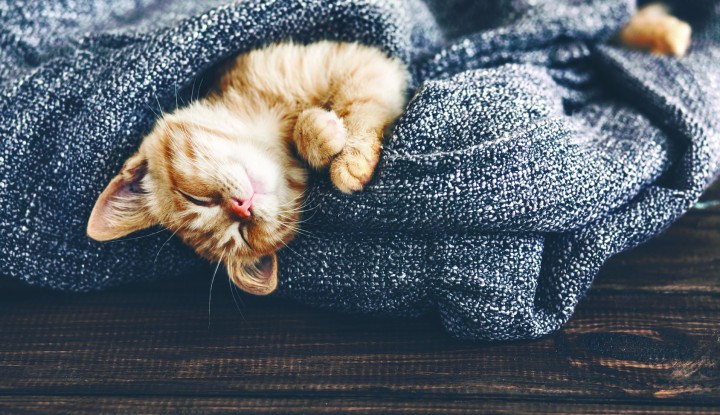Have you ever heard anyone say “cats are useless”??? If so – pttttttt… Because cats are awesome! When making the choice to be a cat owner, Canadians are pretty similar to the rest of the western world. 38% of Canadian homes have a feline family member (compared to 35% of Canadian households owning dogs), and of those cat-owning households, at least . have MORE than one cat. In fact, there are more pet cats in Canada than human children. Pet cats outnumber small humans by 4:1, and in Western Europe that ratio is even higher. So we Canadians do love cats! But sharing your home with feline pals can sometimes have its challenges.
People and cats have different circadian rhythms; cats, being nocturnal snooze the day away and become active and alert at night. They have complex social structures and hierarchies; in multi-cat households they may get along great with each other, or not. Some prefer to be the solitary cat in a household while others are much happier with a buddy.
They are excellent athletes and skilled hunters, which means indoor house and apartment cats can be prone to boredom and obesity. Also, the stomach and digestive tract of these tiny tigers are designed to eat (following a hunt) several small ‘mouse-sized’ meals throughout the day – not just waddle up to the food bowl and inhale a heap of food. This doesn’t mean cat lovers are not good cat owners; it’s just a reality – as pampered and coddled as our feline-children are, living in a human household can create physiological stress for our companions. (As I’m writing this, my typing is slowed down because my cat is sprawled across my keyboard, feet in the air, snoring – clearly STRESSED…).
So it really shouldn’t surprise us when our beloved cats do things to cause US stress; like wake us up at 5 AM because the food bowl is empty, push that neat stack of papers on to the floor just to see what happens, gnaw on the house plants to see how they taste (same as last week, or different??) – only to vomit it back up on the carpet once they remember they are carnivores, not vegetarians. Cat owners are accustomed to these quirky feline-isms. But there is another problem that sometimes occurs, it seems to be a taboo subject many cat parents are reluctant to talk about, and the consequences for many cats can be life or death.
FELINE HOUSE SOILING
“My cat is peeing outside the litter box” is a concern I hear often at my veterinary hospital. And surprisingly – it’s often not a new problem, but actually has been going on for while, and now one or more human members of the family are at the breaking point. Peeing outside the litter box is your cat sending you a message that something is WRONG, even if they seem perfectly normal otherwise. They are not doing it just to be a jerk – even if the spot they are peeing on seems targeted to specific family members.
If you’ve ever dealt with this horrifying problem you’ve likely felt a mix of anger, frustration, guilt, and anxiety. If you’ve sought advice you’ve probably gotten a huge range of conflicting comments like – change the type of litter, change the cat food, put the cat outside, put the cat down…
Feline house soiling can destroy clothing and flooring and create a lot of turmoil and conflict in a household. But there is hope!! Most house soilers can be rehabilitated, and the earlier you seek a solution the better for everyone!!
First things first: Try to identify which cat is the culprit; it’s not always easy to catch these guys in act. Clues can be if a cat is in/out of the litter box frequently, or spending a long time in the box scratching and vocalizing, grooming genital area excessively, vocalizing more than normal, or hiding – these cats need to be seen by a veterinarian IMMEDIATELY! If everyone is acting normal you may need to separate the cats for a day or two and see if that narrows down who is performing the dirty deed.
Troubleshoot your kitty potty situation. Is your litter box clean? Really clean (not just scooped the big chunks out)? Have you changed litter types (cats often hate scented litter)? Is your cat box covered? Do you have enough litter boxes? Are they big enough?
Litter boxes need to be scooped daily and completely emptied and thoroughly cleaned frequently. The plastic box should be replaced once a year. You should have 1 box/per cat + 1 extra. Most cats prefer uncovered boxes and older cats may have trouble getting up into high walled boxes.
Next take your cat to see your veterinarian. They are the ONLY one who understands both the medical issues and behavioral concerns that might be contributing to this problem. Historically, peeing outside the litter box was divided into 2 categories: medical and behavioral. But we now understand, for many of our cats, the issues are intertwined. This is where physiological stress might play a role. Extensive research in this area has shown that cats feeling emotional and/or physiological stress actually get swelling and inflammation of the wall of their bladder – called cystitis. This causes discomfort for the cat when the bladder is full and it can be painful going pee. In some cases, it can even lead to life-threatening bladder obstructions.
If your cat is peeing outside the litter box, even if it’s just occasionally, your cat doesn’t feel well and it is a cry for help. I understand the stress and anxiety this causes, my last cat was a rehabilitated carpet soiler and I help families everyday that are at their wits end with this problem in their household.
Once you have your cats’ litter box issues figured out you can get back to “happily” cleaning up regular cat messes like tipped over plants and that slimy hairball on the floor beside your bed!!
DR. EMILY DURBIN, BSc, DVM moved from Saskatchewan to Chatham-Kent in 2003. Dr. Emily recalls, “I moved here to be part of a fantastic team at this exciting progressive veterinary hospital. And now we love it here! The people are friendly and have small town values. It means a lot to be able to raise my children in a place where they can benefit from both rural and urban community.”



